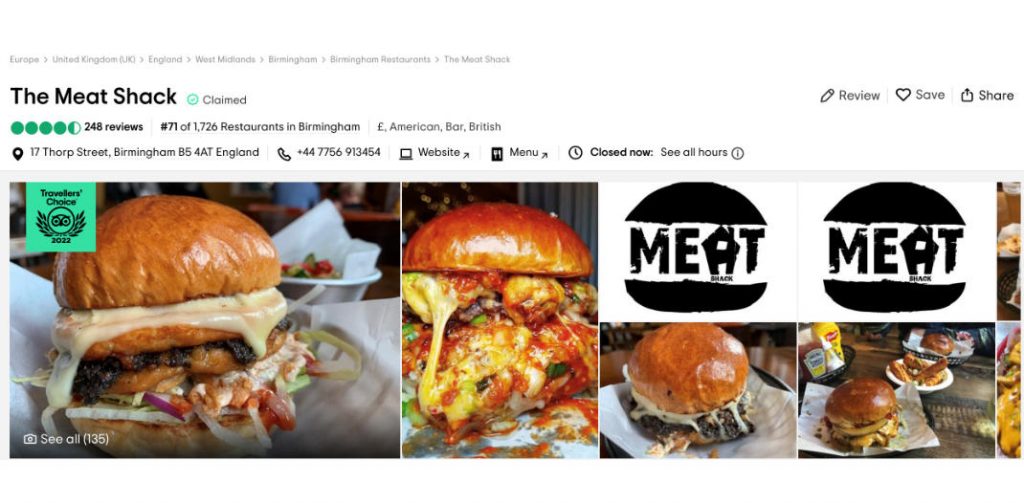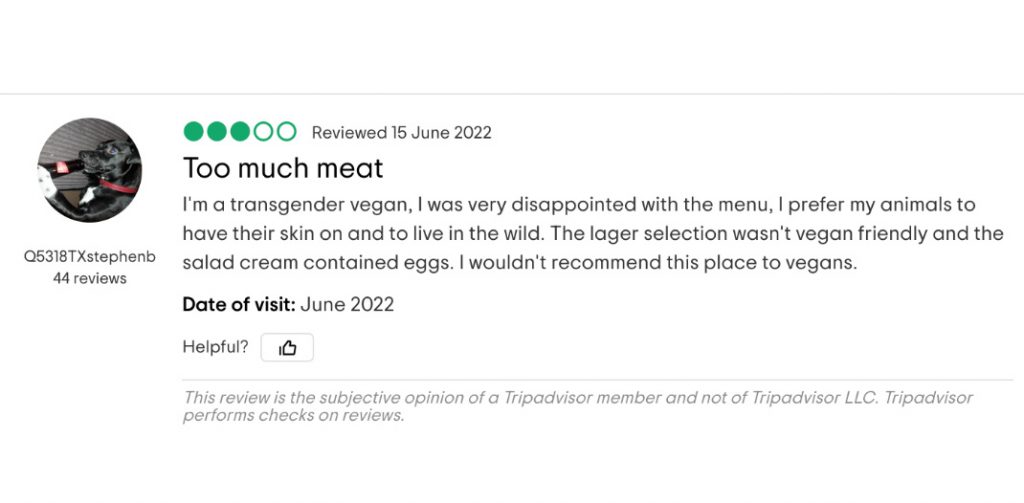I have long maintained that online customer reviews are a pointless and potentially damaging invention. Used extensively by platforms such as Google, Facebook and Trip Advisor, they are supposed to help buyers decide whether to engage with a business, by giving a view of what their customers really think about them.
In theory, this is a good idea. We all want reassurance before parting with our hard-earned cash and when it comes to service industries, we want reassurance that we really will get what we are paying for. This is no more relevant than the search for restaurants, where we are searching not only for a convivial atmosphere, but an excellent meal as well.
The problems, however, with this system is that it is totally one sided in favour of the public and it is also placed a disproportionate burden on restaurants. Not only must they be 100% on every meal and every interaction with a customer (something they all strive for, but cannot always achieve) but, when it goes wrong, they have no defence in the court of public opinion. Once labelled ‘disgusting’ a restaurant is effectively tried, found guilty and sentenced in public, with no defence submitted. It’s another layer of stress and pressure they can do without.
Reviews can also be disproportionately harmful, as given the anonymity of online reviews, anyone can say anything with impunity, as long as they don’t say anything illegal. Which brings me to my latest discovery.
I found myself on Birmingham recently and with a few hours to spare, wanted to go for a meal. Searching online for ‘restaurants near me’ (who doesn’t) there was a decent selection, all of which looked like they might first the bill. As everyone does these days, I decided to take a quick look at the reviews, just out of curiosity.

I ended up on Trip Advisor and almost at the top of my search was a restaurant called The Meat Shack. As you can see, it’s a burger joint and I can see immediately the type of meal I might expect if I go. But right underneath was this review. It reads:
“Too Much Meat
I’m a transgender vegan, I was very disappointed with the menu, I prefer my animals to have their skin on and to live in the wild. The lager selection wasn’t vegan friendly and the salad cream contained eggs. I wouldn’t recommend this place to vegans.”

I’ve shown this to a number of people and their reactions fall into two camps; the first believing it to be a parody and the second taking it seriously. And this is where the problems begin.
As a restaurant owner, there is absolutely nothing they can do about this. It’s not illegal to write what they have, and when you examine other reviews left by ‘new’ contributor (joined in 2022) Stephan Noir, there are plenty of similar reviews of UK establishments, despite them claiming that they are from Nagasaki, Japan. I think it’s clearly a parody account, but you might disagree (they even visit the leaning Tower of Pisa and suggest it needs underpinning). Some people, however, take it seriously and more importantly, their low star rating of this and all the other places they visit, drives down the overall rating of the restaurants and bars they visit. And the owners of these establishments are powerless to prevent it happening.
On top of this, as a business owner, trying to keep on top of these reviews across multiple platforms and submit removal requests for those which are clearly wrong or fictitious (which are typically ignored by the platform owners) is a time-consuming job. Time which might be better spent on improving the service or output of the business rather than tying them in bureaucratic knots.
There is still an active and thriving market in creating and manipulating reviews on all the major platforms and with a few clicks I can buy as many reviews as I like, both positive and negative. Which makes the entire process a joke and not fit for purpose.
Why should business owner be forced to curate nonsense like this when it is the platforms themselves, Google, Facebook, Trip Advisor et al, who benefit from the fresh content. Their entire business models are built on other people creating material for them to publish and then monetising it. Nice work if you can get it.
This business model might work for now but people are waking up to the fact that the only people profiting from this are the large platforms. I don’t expect this to continue as businesses will, over time, realise that they have a say in this and start the fight back.
In the meantime, don’t believe everything you read on the internet. But you already knew that, didn’t you?





